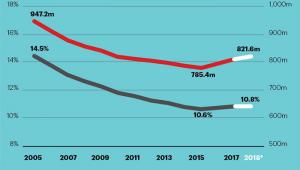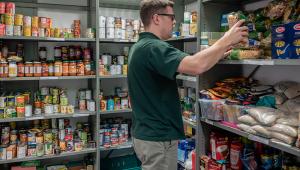
The Trussell Trust today published the details of the number of people using food banks in 2013/14 as it stepped up its campaign for the government to back an independent inquiry on the rise of UK hunger.
According to the Christian charity, which operates the UK's biggest food bank network, over 900,000 people received three days worth of emergency food aid in 2013/14. This is nearly triple the number helped the year before, and the biggest year-on-year rise ever recorded.
Half of these people had been referred due to bureaucratic delays in benefit payments, or following the application of charges or punitive sanctions, the charity highlighted.
The trust has also published a letter signed by 40 bishops calling on the government to do more to tackle food poverty. In total, more than 600 faith leaders signed the letter highlighting concerns that politicians are failing to act to protect the poorest and most vulnerable in society.
Trussell Trust chief executive David McAuley said the figures showed the welfare system was not currently fulfilling its role to stop people going hungry.
‘900,000 people received three days’ food from Trussell Trust food banks in 2013/14, which is shocking in the seventh richest country in the world,’ he said.
‘We are so encouraged to see church leaders across the UK standing up on behalf of the poorest, the growing public support for action against UK hunger is what gives us hope for change. We must not give up.’
The letter, which will be delivered to the constituency offices of Prime Minister David Cameron and his deputy Nick Clegg, as well as Labour leader Ed Miliband, follows an earlier correspondence sent to government ahead of the budget last month.
A Department for Work and Pensions spokeswoman said there was no robust evidence that the government’s welfare reforms, which include the introduction of a household benefit cap, or administration changes were linked to the increased use of food banks.




















